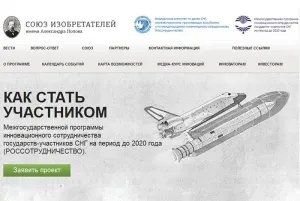Russia assumes CIS chairmanship
02 January 2017

The Council of the CIS Heads of State, which met on 16 September 2016 in Bishkek, decided that Russia would chair the Commonwealth in 2017. Russia will implement its chairmanship through its representative in the Council of the CIS Heads of State, the Council of the CIS Heads of Government, the Council of the CIS Foreign Ministers, the CIS Economic Council, the Council of Permanent Plenipotentiary Representatives of the CIS Member Nations at the Statutory and other Bodies of the Commonwealth, as well as in the Economic Policies Commission at the CIS Economic Council.
The Concept of the CIS Chairmanship of the Russian Federation in 2017 was drafted earlier and focuses on the following objectives:
- Further strengthen and develop the Commonwealth as a regional and intergovernmental organization, enhance its authority and influence in the international arena, ensure better coordination of the CIS member nations foreign policy activities;
- Promote consolidation of the efforts of the CIS member nations to fully implement the key objectives of the CIS in 2017, continue working on the main guidelines set in previous years;
- Implement coordinated measures for enhancing efficiency of the CIS bodies` activities, adapt cooperation mechanisms in the CIS to modern realities;
- Provide political support for development of integration processes and mutually beneficial cooperation in the CIS space;
- Enhance convergence of integration processes at various levels across the CIS space prioritizing the issues related to harmonization of the CIS documents with regulatory and legal framework of the Eurasian Economic Union and the Collective Security Treaty Organization;
- Enhance cooperation in the field of combating terrorism, extremism, trafficking in drugs, psychotropic substances and precursors, human trafficking and illegal migration, as well as enhance related mechanisms created in the CIS for these purposes;
- Extend cultural and humanitarian cooperation in the CIS.
Accomplishing these tasks involves active cooperation with the IPA CIS.



